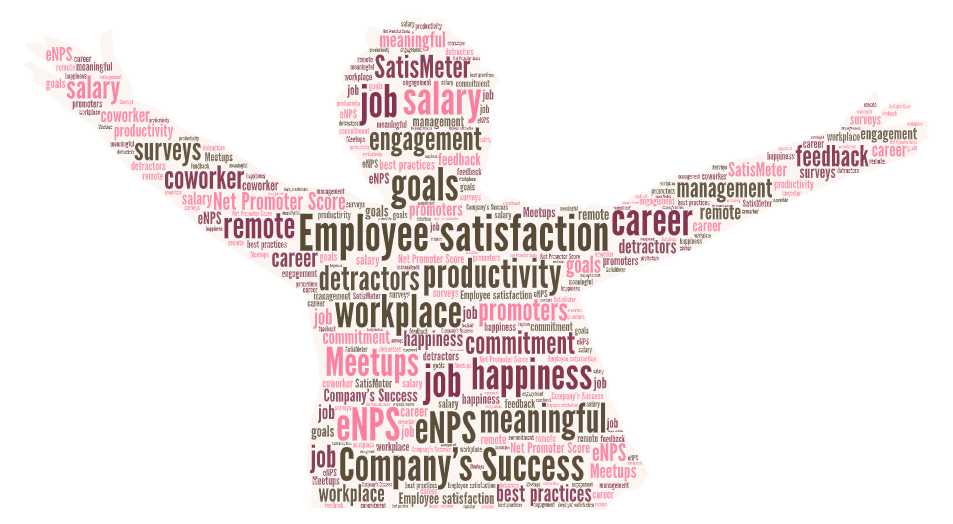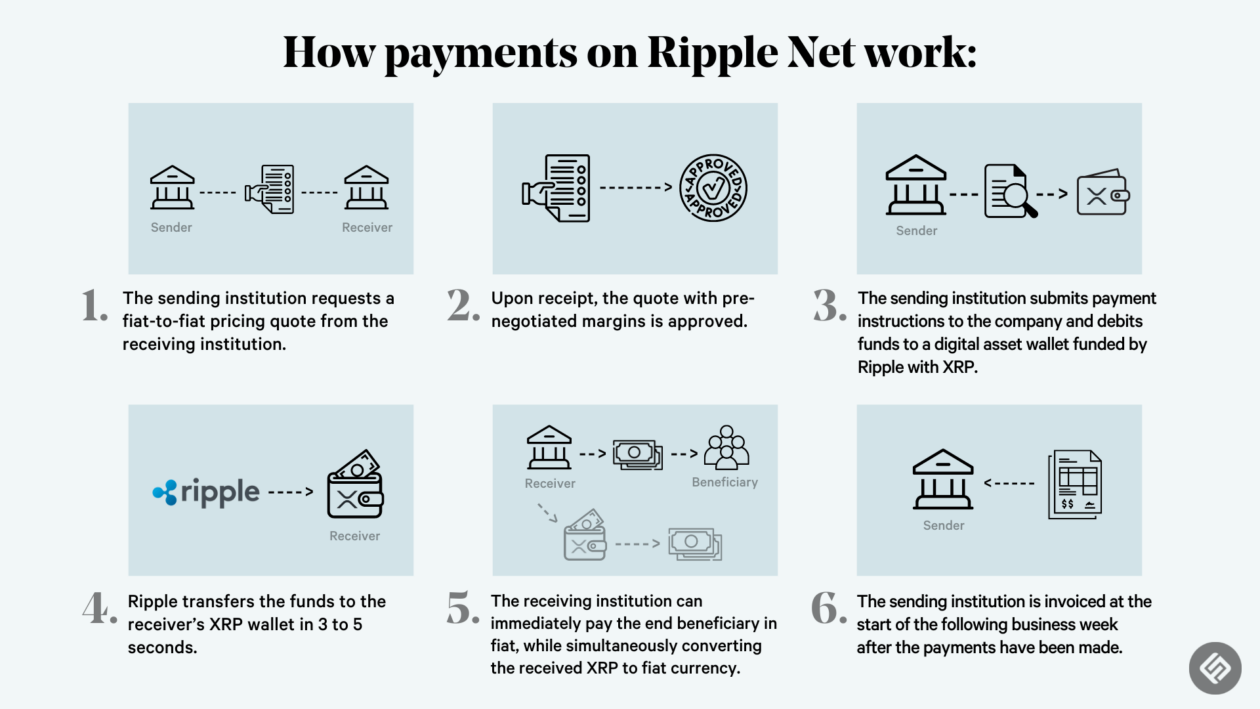The Undervalued Asset: How Middle Managers Contribute To Business Success And Employee Satisfaction

Table of Contents
Middle Managers as the Bridge Between Leadership and Employees
Middle managers act as a critical link, ensuring seamless communication and collaboration between upper management and the workforce. Their effectiveness directly impacts the overall success of the organization.
Effective Communication and Information Flow
Middle managers are vital conduits, translating complex strategic goals from leadership into actionable plans for their teams. Simultaneously, they relay employee feedback, concerns, and suggestions to upper management, ensuring a two-way flow of information.
- Translating complex strategies: They break down high-level objectives into clear, understandable tasks, eliminating ambiguity and confusion. This ensures everyone is working towards the same goals.
- Facilitating open communication: They foster open dialogue and create environments where employees feel comfortable sharing their ideas and concerns. This open communication is crucial for identifying and addressing issues proactively.
- Identifying communication breakdowns: Middle managers are often the first to identify potential communication bottlenecks or misunderstandings, allowing for prompt intervention and corrective action.
- Gathering and synthesizing feedback: They act as filters, consolidating employee feedback to provide concise and meaningful reports for upper management, ensuring that leadership has a clear understanding of the team's perspective.
Mentorship and Development
Beyond communication, middle managers play a critical role in the professional growth and development of their teams. They provide invaluable on-the-job training, guidance, and mentorship.
- Performance feedback and coaching: Regular performance reviews and constructive feedback help employees improve their skills and performance.
- Identifying training needs: By closely observing their team members, middle managers can identify skill gaps and advocate for relevant training opportunities.
- Mentoring junior employees: They serve as mentors, guiding junior employees, providing career advice, and supporting their professional advancement.
- Creating a supportive environment: A supportive and inclusive work environment, cultivated by middle managers, fosters employee loyalty and boosts overall performance.
Driving Operational Efficiency and Productivity
Middle managers are directly responsible for the day-to-day operations of their teams, significantly impacting the organization's overall efficiency and productivity.
Resource Allocation and Project Management
Effective resource allocation and project management are critical for success. Middle managers play a key role in optimizing these areas.
- Optimizing workflow: They streamline processes, eliminate inefficiencies, and ensure resources are used effectively to maximize productivity.
- Managing budgets and resources: They are often responsible for managing budgets, allocating resources efficiently, and tracking expenses.
- Monitoring project progress: They track project milestones, identify potential roadblocks, and implement corrective actions to ensure timely completion.
- Ensuring quality standards: They maintain high standards of quality throughout the project lifecycle, ensuring that the end product meets the required specifications.
Problem Solving and Decision Making
Middle managers are often the first line of defense when operational challenges arise. Their ability to solve problems quickly and decisively is essential.
- Identifying and resolving bottlenecks: They identify and resolve operational bottlenecks, preventing delays and maintaining productivity.
- Informed decision-making: They make informed decisions within their scope of responsibility, demonstrating sound judgment and critical thinking.
- Proactive problem-solving: They anticipate potential problems and take proactive steps to prevent them from escalating.
- Demonstrating strong problem-solving skills: They possess strong analytical and problem-solving skills, allowing them to effectively address various operational challenges.
Boosting Employee Morale and Engagement
The leadership style and actions of middle managers directly impact employee morale and engagement levels, leading to higher retention rates and improved productivity.
Creating a Positive Work Environment
Middle managers set the tone for their teams, shaping the work environment and influencing employee attitudes.
- Promoting teamwork and collaboration: They foster a collaborative atmosphere where team members work together effectively.
- Recognizing and rewarding contributions: Acknowledging and rewarding employee achievements boosts morale and motivation.
- Creating a positive and supportive culture: They build a positive and supportive work environment where employees feel valued and respected.
- Addressing employee concerns promptly: They address employee concerns and grievances promptly and fairly, demonstrating empathy and understanding.
Employee Retention
Effective middle management contributes significantly to higher employee retention rates.
- Investing in employee development: Investing in employee growth and providing opportunities for advancement significantly increases retention.
- Providing advancement opportunities: Creating clear career paths and providing opportunities for advancement keeps employees engaged and motivated.
- Promoting work-life balance: Supporting work-life balance initiatives contributes to employee well-being and reduces burnout.
- Creating a sense of belonging: Fostering a sense of community and belonging within the team strengthens employee engagement and loyalty.
Conclusion
Middle managers are a vital component of any successful organization. Their contributions to business success and employee satisfaction are often underestimated but undeniably crucial. By investing in and empowering their middle management teams, organizations can unlock significant potential for increased productivity, improved employee engagement, and ultimately, greater profitability. Recognize the value of your middle managers and reap the rewards of a thriving and successful workforce. Invest in your middle management today for a brighter tomorrow!

Featured Posts
-
 Adidas Anthony Edwards 2 Unveiling The Design And Features
May 07, 2025
Adidas Anthony Edwards 2 Unveiling The Design And Features
May 07, 2025 -
 Konklawe Co Naprawde Zdarza Sie Za Zamknietymi Drzwiami Watykanu
May 07, 2025
Konklawe Co Naprawde Zdarza Sie Za Zamknietymi Drzwiami Watykanu
May 07, 2025 -
 Should You Invest In Xrp Ripple Weighing The Risks And Rewards
May 07, 2025
Should You Invest In Xrp Ripple Weighing The Risks And Rewards
May 07, 2025 -
 Understanding The Wnba Draft Lottery And Order
May 07, 2025
Understanding The Wnba Draft Lottery And Order
May 07, 2025 -
 Capitals Ovechkin Reunites With Orlov In Miami Amidst 4 Nations Tournament
May 07, 2025
Capitals Ovechkin Reunites With Orlov In Miami Amidst 4 Nations Tournament
May 07, 2025
